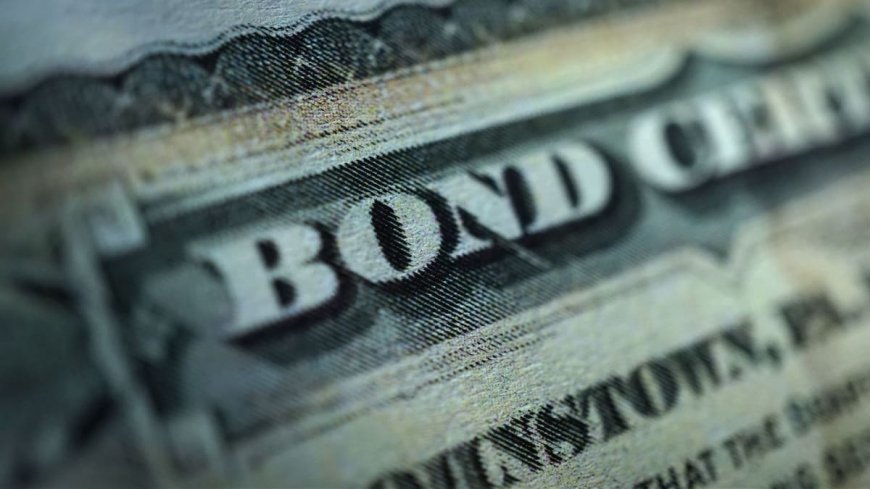Why You Should Consider Investing in Bonds Now
Luminaries from Benefit Street, Franklin Templeton and Brandywine offer their views on fixed-income.

A trio of investment heavyweights believe now is a good time to invest in bonds.
Rich Byrne, president of Benefit Street Partners; Sonal Desai, chief investment officer at Franklin Templeton Fixed Income; and Paul Mielczarski, head of global macro strategy at Brandywine Global Investment Management, offered their views in a Franklin Templeton webinar. Franklin Templeton owns Benefit Street and Brandywine.
It’s “optimistic” to expect inflation to quickly return to prepandemic levels, Desai said. She thinks that it will go back to pre-Great Financial Crisis (2007-2009) levels.
Consumer prices rose 4% in the 12 months through May. They gained 2.6% in 2006 and 1.9% in 2018.
Mielczarski agrees with Desai’s point. Further, inflation is “too high” now for the Fed, which is likely to raise interest rates another 25 basis points, he said.
The federal funds rate target is currently 5%-5.25%. It’s likely to stay above 5% for another 12 months as inflation gradually recedes, he said.
As for economic growth it's "been quite resilient,” Mielczarski said. “The labor market is strong.”
While the housing and regional-bank sectors have suffered, “we haven’t seen the impact of higher rates across the economy,” he said. The economy grew 1.3% annualized in the first quarter. Unemployment stood at 3.7% in May.
Meanwhile, consumer spending will remain strong, and there won’t be sustained downward pressure on wages, Desai said. Personal spending soared 0.8% in April, and average hourly wages gained 4.3% in the 12 months through May. As a result, she doesn’t see a recession coming.
Taking a Different View on Recession
Mielczarski sees a 30% to 50% chance of recession. “We’ve already had a sharp slowdown in corporate profits and investment,” he said. “There’s potential for a significant tightening of credit conditions, and I would expect weakness in the labor market.”
Tight monetary policy, such as the Fed has adopted, usually leads to a growth slowdown or recession, Mielczarski said. “It could be in six to 12 months.
If a recession occurs, it will likely be moderate, with a 1.5- to 2-percentage point increase in unemployment, he said.
As for real estate, the surge in interest rates over the past year has hurt values. “The big problem is office,” Byrne said. “On top of interest rates accelerating, there has been the move to work from home. The idea of converting office space to apartments: good luck.” Zoning and logistics issues make those conversions difficult, experts say.
But there are attractive investment opportunities for multifamily and hospital real estate, Byrne said.
Moderating inflation will be good for bonds, Mielczarski said. Investment-grade corporate-bond yields look attractive in isolation, he said. But they aren’t very high compared with cash. “In periods like these, investment-grade generally underperforms,” he said.
A three-year Bank of America bond rated A-minus recently yielded 5.58%, compared to about 5% for a top money-market account.
Trouble for High-Yield Debt
Meanwhile, there has been a massive debt buildup for low-rated borrowers. “How many highly levered borrowers paying 11%-12% will struggle to make interest-rate payments?” Mielczarski said.
The most appealing opportunities among corporate bonds are companies with stable, predictable earnings, Byrne said. That includes the media and health-care sectors. “Avoid technology,” he said. Also be wary of industries with high labor costs, such as retail..
Turning to currencies, the Bloomberg Dollar Spot Index has dropped 9% over the past nine months. But “the dollar is still expensive,” Mielczarski said. “It has one to two years of further weakness.”
Interest rates in many developed and emerging-market countries are higher than they are in the U.S., he noted. That makes foreign fixed-income securities more attractive than U.S. securities, depressing the greenback.
In addition, global investors are overweight U.S. assets, he said.
But the dollar should rise short-term, as the U.S. economy is “quite resilient,” Mielczarski said. “We need weaker U.S. growth and lower inflation for the dollar’s next move lower.”
July 4th Sale! Get investment guidance from trusted portfolio managers without the management fees. Sign up for Action Alerts PLUS now for 75% off.
What's Your Reaction?


























































